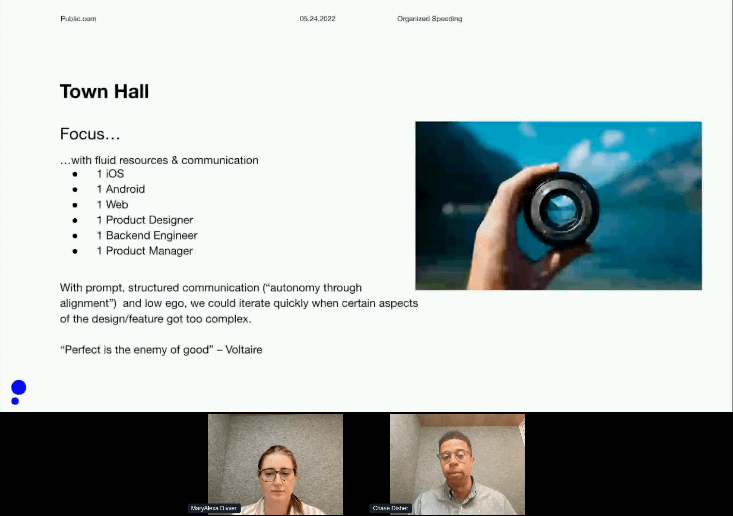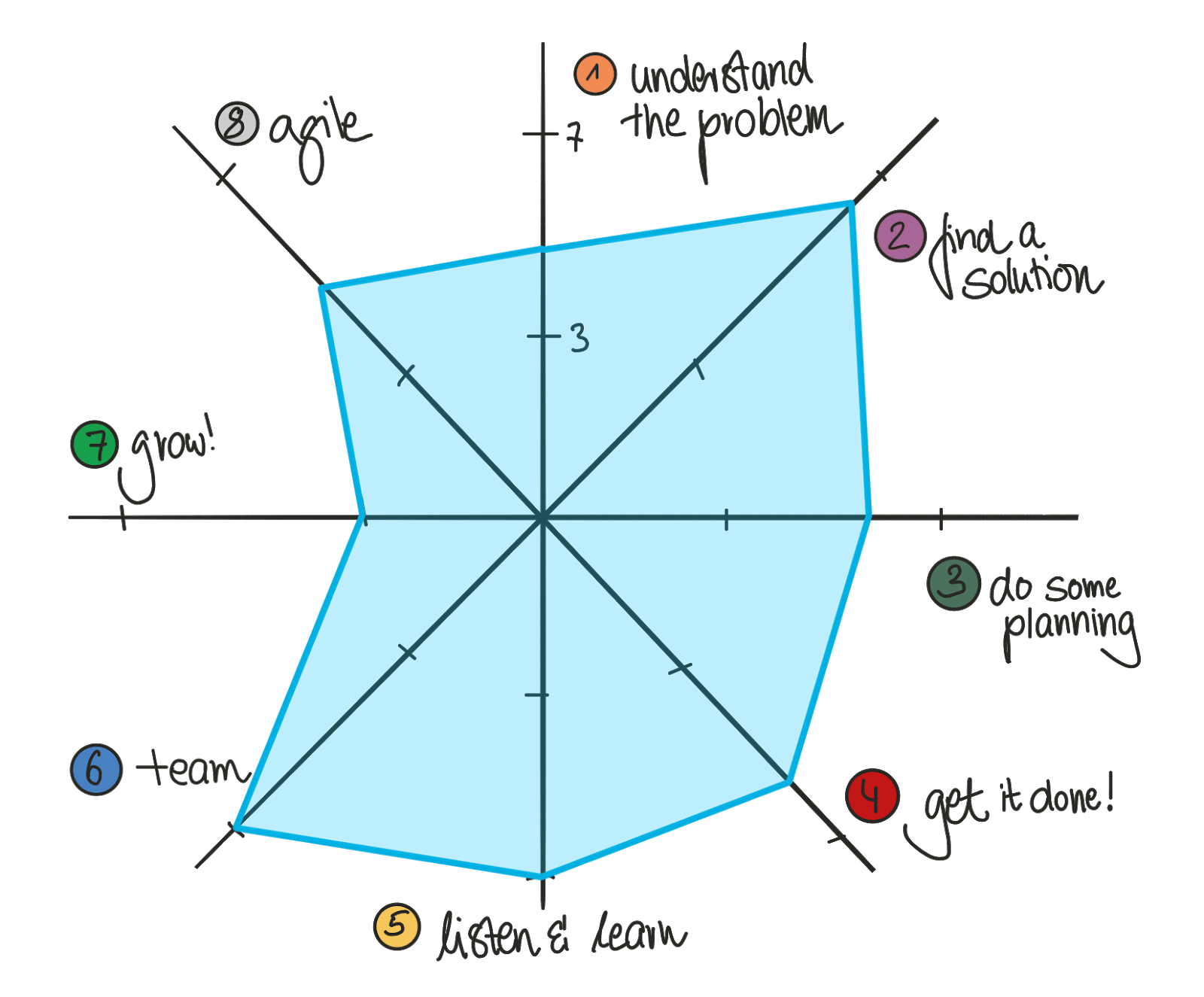

I’m sure you noticed the remarks of Airbnb CEO Brian Chesky a couple of weeks ago and have seen the attendant furore they caused: it was reported that he told the audience at Figma’s annual conference that Airbnb had got rid of its product management function.
Chesky later clarified what he’d said in a tweet: in fact Airbnb has morphed its product management function into an “Apple-style product marketing function” – the cue for further dramatic posts with headlines of ‘Product is dead’ and ‘time to rethink my career’.
The discussion has thrown up an interesting debate, and one that I feel is worth responding to. I’ve also canvassed the views of a number of well-known product leaders in an attempt to lay out the debate as clearly and concisely as possible.
Let’s start by taking a moment to take stock with a few irrefutable statements:
- This is not news, Airbnb made these changes a few years ago – so why is everyone reacting now?
- Product managers as full stack, internal and external facing general managers or mini CEOs of their product is also old news
- PM/PMM blends have been done before – proposition management is one example
- The Airbnb changes followed some pretty sizable layoffs during Covid and Airbnb hasn’t rushed to build back to the size it was before.
- Chesky’s agenda is design-led – he is focused on elevating design not on breaking down product management
Here’s what Chesky actually said:
“The designers are equal to the product managers. Actually, we got rid of the classic product management function. Apple didn’t have it either. We have product marketers, we combined product management with product marketing, and we said that you can’t develop products unless you know how to talk about the products. We made the team much smaller, we elevated design”
“Designers are seen as architects…..Design is much more than a department… a whole new generation of designers, that are going to sit alongside engineers, they’re not just going to be told what to do by Product managers, they are going to be helping drive the product and some of them are going to choose to drive companies. … Product managers are critical, but they shouldn’t be doing the job of a designer. The best thing for PMs is to pair them with design from the beginning, because for a lot of companies design has become a service organisation, design should not be a service, where it’s your job to work from the very beginning, design challenges technology and technology inspires art. It’s not more important than technology, it’s a perfect harmony from the beginning.”
Remember Chesky is a designer and rightly proud to have built a design-led company. He’s clearly aware that he’s possibly the only designer now operating as CEO for a Fortune 500 company. He made these statements to a hall full of designers at a conference about the design discipline and was talking in an interview about the benefits of being design-led.
That said, one of his comments, that Product ‘shouldn’t be doing the job of a designer’, particularly resonated with me.
It’s a dog fight over UX
I’ve not heard anyone else discuss it so far, and I think this comment harks back to the old dog fight of the domain of UX. In the ‘old days’ we had information architects, a role that was mostly replaced with interface and interaction design, user interface design (UI) then UX. Depending on the people, skills and opportunities there has been a tussle brewing ever since. I believe UX should be collaborated on by a cross-functional team, through the trio of product design, product and engineering all the way through to QA and customer support. Chesky however seems determined to hand UX solely over to product design.
Moving product managers out of cross-functional teams – away from day-to-day delivery to be proposition-management focused – clears the path for product designers to have complete ownership of the direction of the customer experience. What they likely won’t have bargained for is the impact of their new architectural role – and what they actually have to spend time on day to day.
Someone still has to make sure that the cross-functional teams are aligned and working with an appropriate level of synergy, removing any dependencies… while being mindful of market trends, the competitive landscape, protecting the tech stack and ensuring the customer support, knowledge centre and all the product collateral is up to date! Oh wait, surely the product managers should be doing that? Shame – they’re now too busy focusing on market sizing, product positioning and messaging and driving the go-to-market strategy!
It will be interesting to observe what happens to Airbnb with the removal of the business focused function from (now not so) cross-functional teams. These teams are reduced to execution only with technology and delivery functions, and reinforce Chesky’s approach for centralisation and control by the few (or by the one!). Working for a big brand can only hold people for so long, eventually frustration at the lack of empowerment and blurring of the lines of responsibility will likely cause many of those affected to look elsewhere for a more modern and decentralised way of working.
Views from other product leaders
Interestingly everyone I spoke to had very similar responses…
- We’ve been talking about this for years
- Product management as a function having P&L responsibility, being the mini CEOs of their product line is table stakes for full-stack product management
- Chesky’s design-led focus means every decision he makes is going to answer to that agenda…
Product management is defined differently across companies
Emily Tate, Managing Director of Mind the Product, reflects: “This is just another example of how ‘product management’ is defined differently across companies. Airbnb ‘merging’ PM and PMM has been advocated by many of us for years. The notion that PMs were ‘above designers’ giving them orders to fulfil and now ‘design is equal to product’ Well YES! This is exactly what we mean when we talk about the product team/squad being made up of the trio of design, product and engineering.
Product should be paired with good design
It sadly is the case that many companies do not treat design equally and see them as the function that makes things ‘look good’. Many design teams never have the time to do customer research to deeply understand their customers and therefore help to shape the product, perhaps at Airbnb they had gone too far in this direction and are now trying to pull it back to the trio relationship. But this shift back to balance, won’t mean ditching product management altogether.
I am frankly surprised that, as a designer himself, it’s taken Brian so long to come to this conclusion. Product is much stronger when paired with good designers, and Design is much stronger when paired with good product managers. The thing that is unproductive is when we spend too much of our time debating which is more important.”
Product management is a full-stack role
Graham Reed, Founder of the Product Mind, Head of Product Ops at Cobalt and Ambassador for Product Ops at Product Led Alliance adds: “Back in the day as product managers we were lucky to have a PMM, a designer, or product operations. We did it all ourselves. Today, in larger companies at least, the tasks of the PM have been spread out to allow for specialism and focus. BUT….it’s important to note that the same tasks are still being completed. The move here is NOT to say the traditional roles of a PM are no longer to be done, that they are not important – but that they have been reassigned and/or merged in Airbnb’s instance into one full-stack role – product marketing professionals.
It’s context compression
Sean Gabriel, Director at Red Badger, is of the same mind. ”Reports of Product’s death are greatly exaggerated! This feels like the latest case of context compression causing an uproar in the community. It’s clear Brian was describing an overall shift in discipline priorities specific to Airbnb: to give design the strong accountability for a delightful customer experience, while combining the strengths of (previously) inward-focused PMs with outward-focused PMMs to own the outcomes of the customer experience, changes meant to serve Airbnb’s unique organisational context, should be taken with a grain of salt before being copy-pasted into a new context.”
It’s cost-cutting and the Steve Jobs playbook
Itamar Gilad, ex-Google, now a product coach, was also happy to share his views with me following his recent post on LinkedIn: “Merging product management with product marketing management has more to do with cost-cutting and freeing space for UX designers to take a central role, than it is about evolving product management. Chesky is attempting to follow the playbook of Steve Jobs in Apple of the 2000s, where managers effectively played the role of product managers, working closely with engineers and designers, and (unlike good product managers) were making all the major product decisions. This centralist, hands-on model may work with very visionary leaders who are also very strong at product, like Steve Jobs. However, most companies are not led by such people, and it is therefore generally better to distribute decision-making and to create an intelligent org that is able to discover and deliver products that address real user and business needs without central command and control. Time will tell if this radical overhaul of product development will benefit Airbnb.
In conclusion
The debate about the product discipline is always healthy. It’s in the nature of a product manager to challenge the status quo and push for change when change is good. Ultimately though Airbnb is pushing back against some of the natural evolutions that many of these roles have already experienced.
Running a company from a design-led roadmap instead of a product one is certainly interesting but let’s be blunt: when I look for a holiday destination the mission of “anyone being able to belong anywhere” as a design led incentive to delight me pales in comparison to the overall customer journey I take from searching for and booking through to the actual holiday experience (just take a look at the scores and reviews on Trustpilot, shown below to see how it’s going).

A final thought from Emily Tate: “The inevitable debate that arises when things like this come up is in part due to a response from people who aren’t deeply involved in the product community passing on misinformation like ‘Airbnb just got rid of product management’. So be prepared to continue this debate along with others, and eventually (hopefully) we can just get on with what many have both advocated for and implemented many times – a well-balanced team that includes data, engineering, design, AND product management.”







Comments
Join the community
Sign up for free to share your thoughts